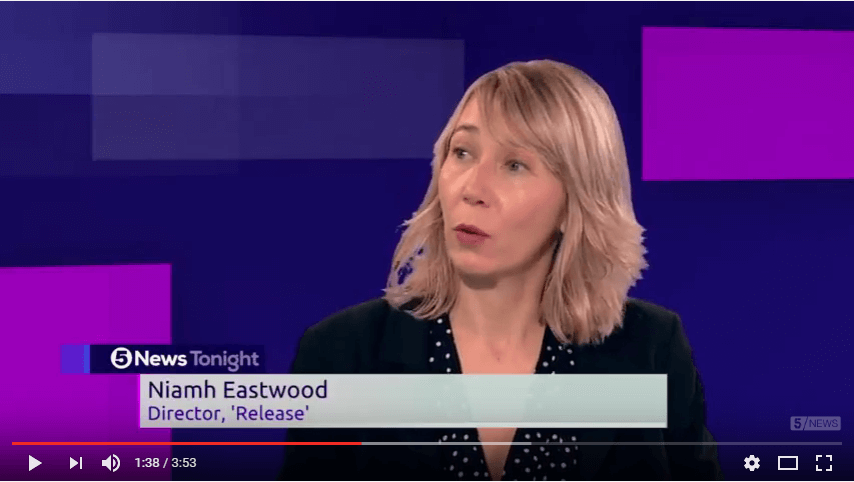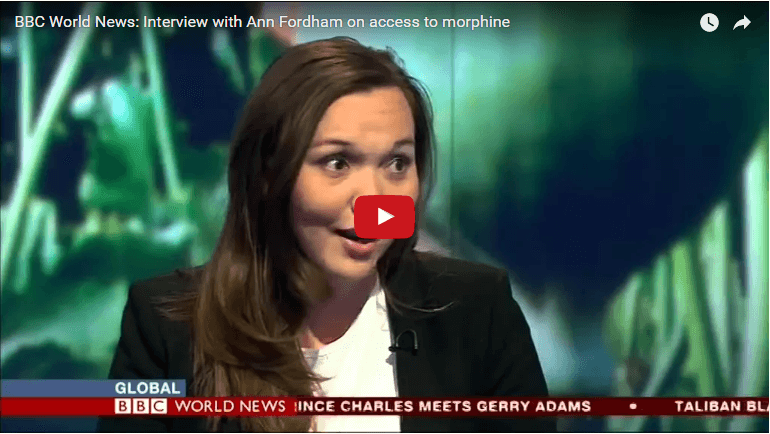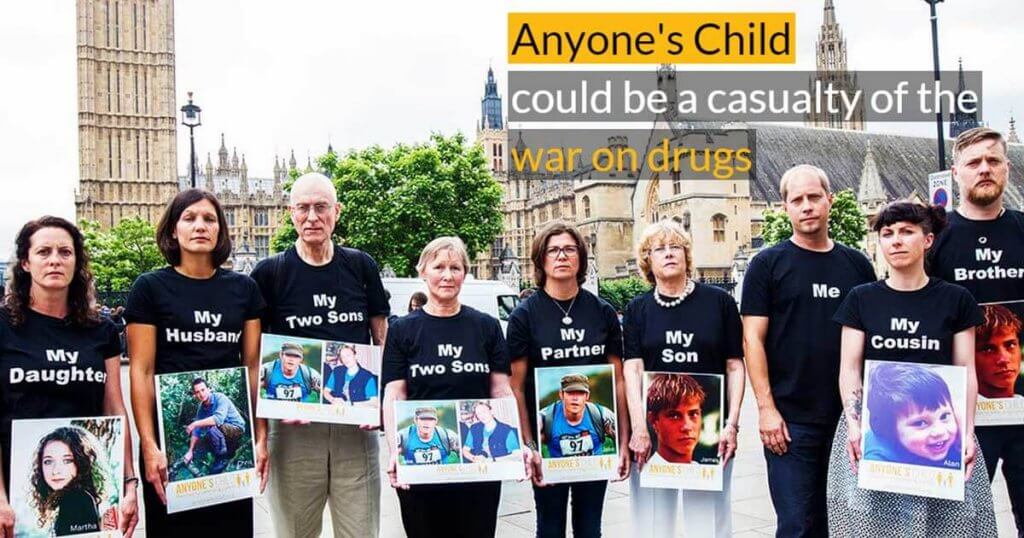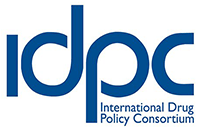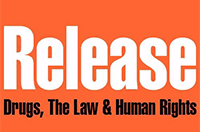
Be Bold For Change: Women Changing Drug Policy
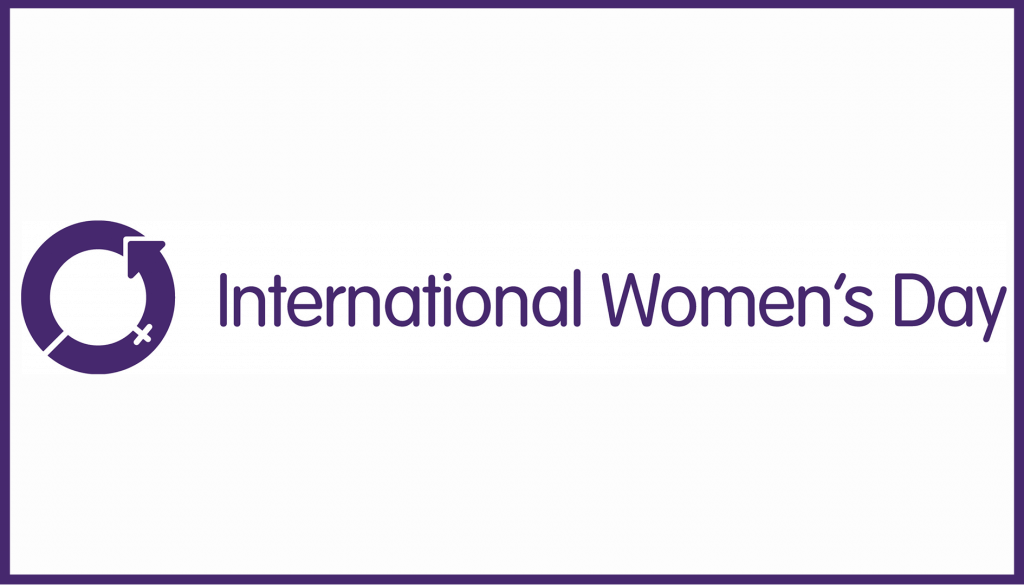
Today is International Women’s Day and the rallying cry of 2017 is Be Bold for Change – a timely call to action in the global struggle for drug policy reform. Current policies borne out of the War on Drugs discriminate against the marginalized and the disempowered, so it is no surprise that the rights of girls and women are frequently among the first casualties. Around the world today, more women are imprisoned for (predominantly non-violent) drug offences than for any other crime.¹
A culture of violence is a consequence of prohibition and women who use drugs often don’t speak out when they are violently abused for fear of persecution by the law. While a third of women globally are estimated to have suffered physical or sexual abuse, that figure rises to between 40% and 70% in women receiving treatment for drug use.² Accurate information about women and drugs is often difficult to find, when it exists at all, and more data is urgently needed.
We do however have figures for female incarceration rates, and here the numbers are bleak. In the past three decades, the female prison population in the US has gone up by more than 800%, while the male population has increased by 300%. In Latin America the number of women in prison doubled between 2006 and 2011 – most of these for drug offences.³
It is against this backdrop that the Beckley Foundation would like to highlight and celebrate the important work of five women in the UK leading the way for drug policy reform, including our own Founder and Director Amanda Feilding:
Niamh Eastwood is the Executive Director of Release, the national centre of expertise on drugs and drugs law. Niamh has written extensively about ethnic disparities in drug prosecution and the need for global drug decriminalisation, an essential step towards reducing the collateral damage of the War on Drugs. This is something that is particularly pressing for women, given that criminal courts are disproportionately harsh on females prosecuted on drugs charges, usually for non-violent offences like trafficking and crop growing. Niamh is also a member of the Expert Steering Group for the Global Drug Survey, an important resource for collecting data on women and drug use. Release is currently running a campaign calling for the decriminalisation of drug possession offences in the UK, which causes untold social damage to communities and individuals while having no effect on the movement of drugs.

Amanda Feilding is the founder and Executive Director of the Beckley Foundation, which she established in 1998 to bring scientific evidence to the fore of the drug policy debate. In the first decade of the millennium Amanda set up an influential seminar series at the House of Lords called Society & Drugs: A Rational Perspective, initiated the Scientific Scale of Harms for Psychoactive Drugs, and convened the Global Cannabis Commission, which published a seminal report and subsequent book, ‘Cannabis Policy: Moving Beyond Stalemate’. This was the first publication to outline steps for decriminalising and creating a fully regulated legal cannabis market. In 2011 she published a public letter in The Times and the Guardian calling for a global rethink in drug policy, that was signed by over 60 leading world figures (including former presidents). More recently Amanda has acted as a special advisor to the Jamaican and Guatemalan governments, and the Beckley Foundation will soon publish policy reports laying out the roadmaps to regulating cocaine, cannabis, MDMA and psychedelics.
Ann Fordham is the Executive Director of the International Drug Policy Consortium (IDPC), a global network that promotes objective and open debate on drug policy. At IDPC, Ann is driving drug policy change by prioritizing public health and protecting fundamental human rights. As a member of the UN Strategic Advisory Group on Injecting Drug Use and HIV, she is at the forefront of harm reduction for those drug users most vulnerable to HIV, which includes women sex workers.⁴ Her work expanding IDPC’s global network is helping to protect at-risk communities such as illicit crop growers, where the role of women is largely unrecognised. Under Ann’s leadership, the IDCP launched a special report in 2016 to address the damaging consequences that drug criminalisation has for women, titled: ‘Women, drug policies, and incarceration – A guide for policy reform in Latin America and the Caribbean.’

The Loop is pioneering drug testing at music festivals and clubs © Wikimedia/Anosov1505
Fiona Measham is a professor of Criminology at Durham University, board member of the ACMD and co-founder of The Loop, a not-for-profit community interest company set up to reduce harm and enhance wellbeing at festivals and nightclubs. The Loop provides drug, alcohol and sexual health advice, as well as forensic testing and festival welfare support. Fiona’s approach has been to investigate user habits in drug-taking environments and test drugs on-site, providing access to much-needed harm prevention options. Her method of integrating academic research, policy and practice has allowed her to put innovative measures into practice far more rapidly than any government body. In showing the way with evidence-based solutions, Fiona’s work with pioneering drug testing measures has saved lives, and will continue to do so more as drug testing at festivals begin to be adopted in venues across the UK.
Nicky Saunter is the CEO of Transform, a charitable think tank that has been campaigning for an end to the drug war for the past two decades. Transform regularly advises international governments on drug policy reform and produces groundbreaking publications critiquing the War on Drugs and outlining a vision of a post-prohibition world. Nicky brings 25 years of entrepreneurial experience to her role at Transform, which recently launched Anyone’s Child – a campaign comprised of families whose lives have been wrecked by current drug laws, and who are now fighting to change them. Anyone’s Child is giving voice to bereaved families and allowing their stories to inform the narrative around drug-related deaths, reminding politicians and the public that the lives being lost are anything but a mere statistic.
An immense amount of work lies ahead of us if we are to reduce the harms inflicted by prohibitionist drug policies, and an important first step is to eliminate punitive measures against non-violent offenders. It is through the brilliant work of these women striving to reform drug policy and the many others like them that change is going to come.
Words: Sasha Frost
Podcast
- All
Links
- All
Support
- All
BIPRP
- All
Science Talk
- All
Amanda's Talks
- All
- Video Talk
- Featured
- 2016 Onwards
- 2011-2015
- 2010 and Earlier
- Science Talk
- Policy Talk
One-pager
- All
Music
- All
Amanda Feilding
- All
Events
- All
Highlights
- All
Psilocybin for Depression
- All
Current
- All
Category
- All
- Science
- Policy
- Culture
Substance/Method
- All
- Opiates
- Novel Psychoactive Substances
- Meditation
- Trepanation
- LSD
- Psilocybin
- Cannabis/cannabinoids
- Ayahuasca/DMT
- Coca/Cocaine
- MDMA
Collaboration
- All
- Beckley/Brazil Research Programme
- Beckley/Maastricht Research Programme
- Exeter University
- ICEERS
- Beckley/Sant Pau Research Programme
- University College London
- New York University
- Cardiff University
- Madrid Computense University
- Ethnobotanicals Research Programme
- Freiburg University
- Medical Office for Psychiatry and Psychotherapy, Solothurn
- Beckley/Sechenov Institute Research programme
- Hannover Medical School
- Beckley/Imperial Research Programme
- King's College London
- Johns Hopkins University
Clinical Application
- All
- Depression
- Addictions
- Anxiety
- Psychosis
- PTSD
- Cancer
- Cluster Headaches
Policy Focus
- All
- Policy Reports
- Advisory Work
- Seminar Series
- Advocacy/Campaigns
Type of publication
- All
- Original research
- Report
- Review
- Opinion/Correspondence
- Book
- Book chapter
- Conference abstract
- Petition/campaign
Search type
